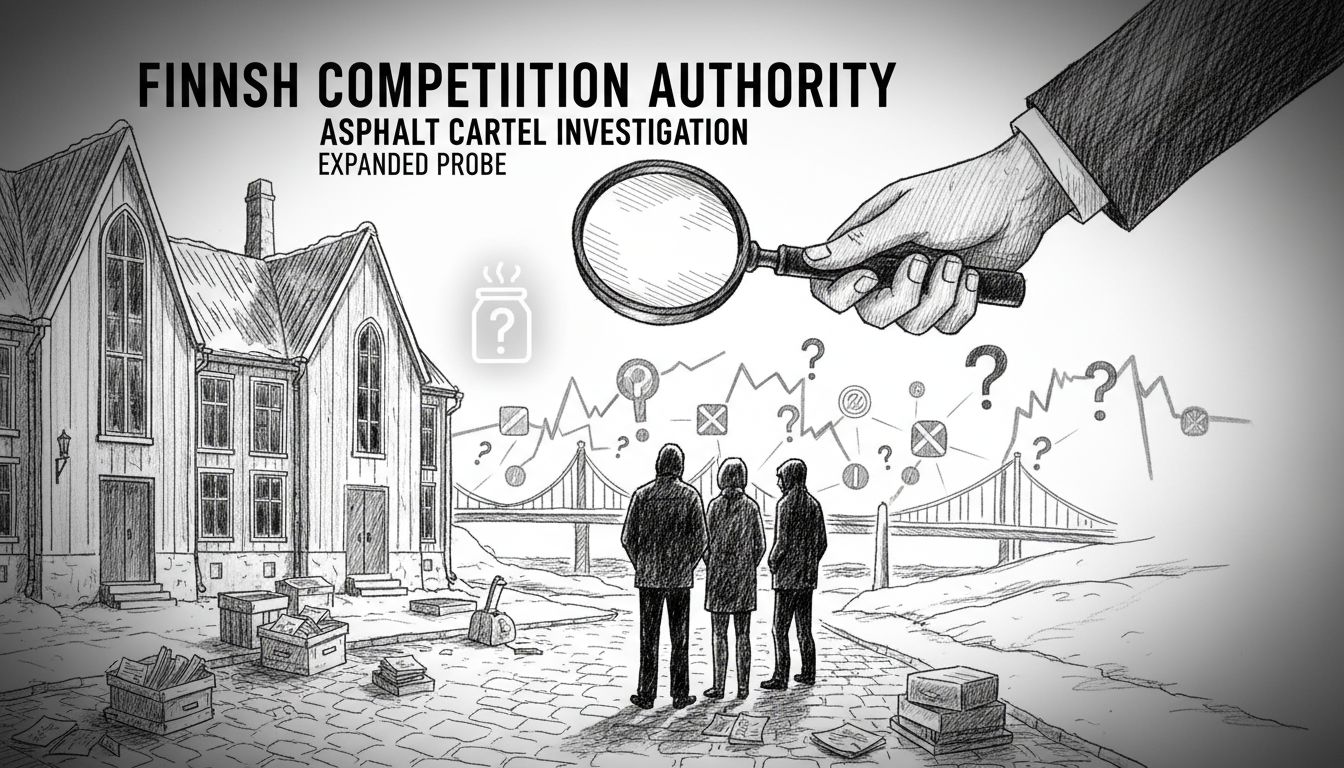The Finnish Competition and Consumer Authority has intensified its probe into suspected asphalt industry collusion. Officials conducted surprise inspections across multiple locations, including private residences. This marks an escalation from previous checks carried out in May and June.
The Market Court authorized these inspections, which is required by law when authorities need to search premises beyond regular business locations. The investigation focuses on whether companies engaged in illegal cooperation. Authorities describe this as a geographically and economically widespread cartel suspicion.
What makes this case particularly noteworthy is the scope of the investigation. The asphalt sector represents crucial infrastructure spending across Finland. Any price-fixing could have affected numerous public projects and taxpayers. The Finnish competition law allows for such inspections as part of preliminary investigations.
These inspections don't automatically indicate guilt. The authority emphasizes this point in its official communication. They will determine the legality of company practices only after completing all examinations and gathering evidence.
The timing raises questions about potential infrastructure cost inflation. Finland has been investing heavily in road maintenance and construction. If companies were colluding, this could mean taxpayers overpaid for critical infrastructure projects.
Authorities are requesting tips about suspected competition restrictions through their contact form. People can submit information anonymously. This approach often yields crucial evidence in complex cartel cases.
Finnish competition law treats cartel violations seriously. Companies found guilty can face substantial fines. In extreme cases, individuals might face criminal charges. The legal framework aims to protect both consumers and fair business competition.
This investigation follows a pattern seen in other Nordic countries. Sweden and Norway have conducted similar probes into construction sectors in recent years. The region takes a strong stance against anti-competitive practices.
The outcome could reshape the asphalt industry's competitive landscape. Smaller companies might benefit if larger players face sanctions. Public procurement processes might also see reforms to prevent future collusion.
International readers should note Finland's robust anti-trust enforcement. The country maintains strict competition laws comparable to EU standards. This case demonstrates how seriously authorities treat potential market manipulation.
The investigation continues with no set timeline for completion. Authorities will analyze documents and electronic data seized during inspections. Their final decision could take months as they build their case.

